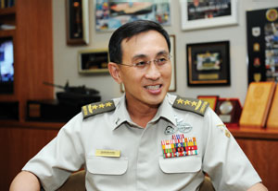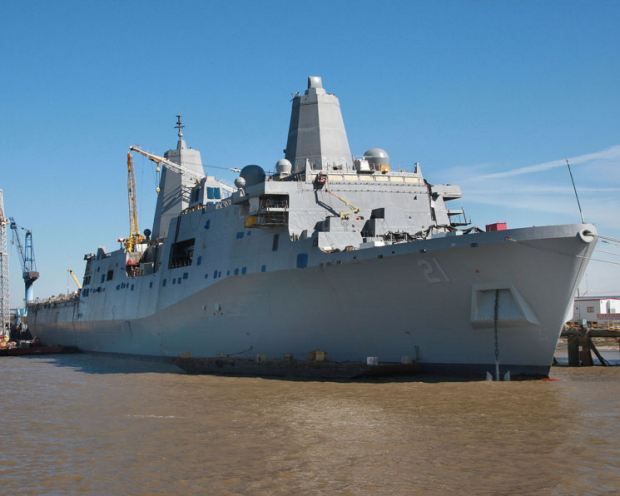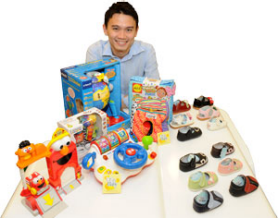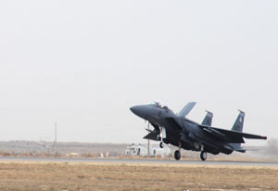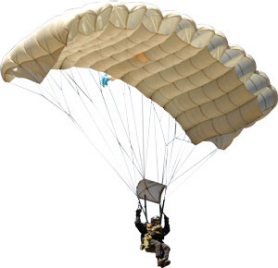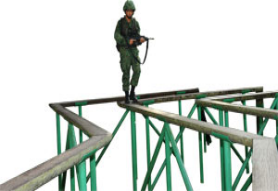In an exclusive interview with PIONEER, Chief of Defence Force (CDF) Lieutenant-General (LG) Desmond Kuek talks about the new human resource initiatives recently introduced in the Singapore Armed Forces (SAF).
Come 1 Apr, expect to see a new breed of soldiers known as Military Experts, working alongside other uniformed personnel. This newly launched Military Domain Experts Scheme (MDES) is accompanied by a slew of enhancements to the existing career schemes for officers and warrant officers.
But while there may be three different schemes of service, all three serve a single purpose: to build a stronger SAF and realise the full potential of its people, said LG Kuek. "As we roll out the new schemes, it is important that we remember the human resource (HR) constructs are not ends in themselves. They are the means towards attracting, nurturing and engaging our people to take on their role as protectors and defenders of our nation's security and sovereignty."
PNR: Can you share with us the thought process behind the development of these new HR initiatives?
We started the review two years ago in early 2008, way before the financial crisis. It was a deliberate and holistic effort to address the evolving aspirations of our people and the new organisational needs of the 3rd Generation SAF. From the start, we involved commanders and HR practitioners at all levels across the Services, in a wide-ranging and systematic effort to consult and gain ground feedback on how our people could be better nurtured professionally for current and future challenges, and what would deepen engagement levels.
At the same time, we examined the manpower data and trends to discern our long-term HR challenges.
The conclusion we reached was that our existing one-size career structure would not be able to meet the diverse needs and aspirations of our people. We had to break out of the current boundaries to create new capacity and potential in the organisation.
What helped the process immensely was that our people all shared a common mission and value system, and believed in the importance of developing our people well to fulfil their roles and responsibilities.
Can you share some of the review's findings?
The review found that our officers want a fast-paced, challenging and meaningful career, and at the same time, a greater degree of job stability, better matching to their life-cycle needs, and a higher value-added career.
Our warrant officers, on the other hand, want to heighten their sense of pride and professionalism, they desire more empowerment, greater responsibilities, and wider job scopes, and are keen to upgrade themselves academically and professionally.
In addition, a fundamentally different approach was needed to develop deep expertise in military domains such as engineering, intelligence and military medicine.
The outcome of the review thus saw the creation of a new scheme of service for Military Experts and significant improvements to the existing officers and warrant officers schemes. These enhancements will allow greater differentiation in career development and deployment opportunities for our people in service, and appeal to a new generation of Singaporeans joining the SAF.
They will also position the SAF to better meet the more environmentally complex, technologically-advanced and integrated force demands of today and in the future.
What were some of the challenges encountered when formulating the changes in this major overhaul to the SAF's career schemes?
It has, indeed, been a massive transformation effort. I have been deeply impressed and encouraged by our people throughout the process - with their openness to new ideas and willingness to explore fresh ways to do things outside the box and their comfort zones.
It was hugely complex because we were not starting the HR policies and schemes from a clean sheet, and there were many transition issues for in-service people to be worked out equitably and satisfactorily.
More significantly, the challenge was not just in the physical constructs of the new scheme and how to implement the best practices; but also our own mental constructs.
We needed to embrace a new mindset to move forward without tripping over old and possibly limiting perspectives.
There is more work to be done over the next few years. Our leaders at every level must continue their excellent efforts in engaging their people, and steering the implementation wisely to meet the intent of each of the new schemes.
Concurrently, jobs will need to be re-scoped and redesigned, and establishment structures realigned to suit a more knowledge-centric organisation. And we will continue to be open to new developments, learn and adjust along the way.
Do you see these new initiatives having an impact on the culture of the SAF?
At one end, I expect we will take all these changes easily in our stride when the new schemes are implemented. Our people are used to working across Arms, Services and Schemes; and regulars already work seamlessly alongside national servicemen and civilian counterparts.
There might be a few puzzled looks initially as people figure out the thick and thin lines on the new MDES ranks, and try to shake up some of the internal relativities, but they will adapt very quickly.
The SAF has been steadily growing its culture of stronger networks and integration over the years, and this will be a step closer to our vision for One SAF.
At the other end, I hope there will be a profound impact on structure and culture in the SAF. I would be disappointed if it was life as normal after the new constructs have been implemented.
The new schemes aim to bring about a new attitude towards life-long learning and employability, as well as a re-profiling of our HR structures and a re-scoping of jobs. And we certainly look forward to a new emphasis on the strengthening of the hallmarks of leadership and excellence that define our people in the SAF.
How have the servicemen responded to these initiatives?
An overwhelming 95 percent of our servicemen who were offered MDES have accepted the new scheme. Our officers and warrant officers have also given the thumbs-up to the new enhancements to their schemes of service.
This is an outstanding endorsement, and augurs well for all three schemes as we continue to work towards their successful implementation. I see these positive responses to the new HR constructs as the clearest indication by our people of their strong commitment to the SAF.
As CDF, what is your vision for these new initiatives, and what do you hope they will achieve for the organisation and the individual?
Three years ago, I outlined our vision for One SAF. This was to be realised through three key thrusts under the acronym O-N-E. The first was to operationalise the first spiral of the 3rd Generation SAF, and by 2010, we will be stepping into the next spiral of development.
But real transformation lies in the hearts and minds of our people, and we know that the key to mission success is our people. They are truly our most vital resource; and so two of the three letters in O-N-E are about people - to nurture first-class people in a world-class organisation and to engage them towards stronger commitment and greater excellence.
The HR initiatives have been developed to bring about these, and to realise the full potential of the 3rd Generation SAF that is full-spectrum, ready and integrated. We will grow our people through the three schemes, in a spirit of community and partnership with one another.
As the new slogan goes, it's One SAF, Three Schemes, Seven Core Values, Infinite Possibilities.
With the introduction of a new scheme and enhanced schemes for officers and warrant officers, gone are the days of one-size-fits-all career paths.
Existing personnel in service as well as those considering a military career can look forward to more choices and chances for academic upgrading and professional development, when the Singapore Armed Forces (SAF) officially launches its human resource (HR) initiatives in April.
Military Domain Experts Scheme
The newly-established Military Domain Experts Scheme aims to attract and groom a highly specialised corp of soldiers in various domains such as engineering, intelligence and military medicine.
These selected SAF personnel can expect to serve up to the age of 60, and will be given more opportunities to develop greater depth of knowledge and competency in their fields of interest.
Progression up the eight-rank structure - from ME1 to ME8 - is based upon the soldier's work performance and degree of expertise. Similar to their uniformed counterparts, MDES personnel are expected to bear arms and participate in operations when needed.
Enhanced Officers Scheme
Under the Enhanced Officers Scheme, the retirement age for officers has been raised from 45 to 50. This extended career length provides them with more time to train and undertake a wider variety of ground and joint postings, while continuing to enjoy a fast-paced and dynamic career. They will also have more opportunities for continuing education through tie-ups between the SAF and local universities such as SIM University and Nanyang Technological University.
Enhanced Warrant Officers Scheme
The Enhanced Warrant Officers Scheme will see wider job scopes, more empowerment and greater responsibilities for warrant officers and specialists. Specialists who perform well can now attain the new 3rd Warrant Officer (3WO) rank as early as at the end of their sixth year of service. They can also pursue further studies via degree sponsorships, which will be offered to promising personnel as early as the end of their second year of service.
